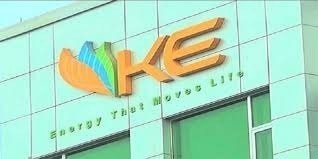Karachi Traders Reject KE’s Rs76bn Write-Off, Cry Foul Over ‘Bogus Bills’

NEPRA Orders KE Probe; Karachi Traders Say ‘No More Surcharges’
ISLAMABAD: Business leaders and industrialists in Karachi on Thursday launched a scathing attack on K-Electric (KE), vowing not to pay “a single penny” in surcharges related to the company’s Rs76 billion write-off claims, while accusing the utility of sending bogus bills to defaulted consumers dating as far back as 2005 and 2008.
The criticism came during a public hearing held by the National Electric Power Regulatory Authority (NEPRA), which also ordered an investigation into the legitimacy of KE’s claims and billing practices. The regulator scrutinized an additional Rs8.131 billion in write-off requests submitted by the utility, which brings KE’s total claims to Rs76 billion under the Multi-Year Tariff (MYT) regime for 2017–2023, The Nation reported.
Business community representatives showed copies of electricity bills to argue that KE is billing long-defunct consumers with implausible arrears. Jamaat-e-Islami’s Imran Shahid cited one such consumer from 2008 who now allegedly owes Rs290 million. Another participant, Arif Balwani, said a consumer with a mere 2kW load received bills amounting to Rs40 million.
“This is nothing short of a scam,” said Balwani, calling KE’s claims an attempt to shift the burden of its inefficiencies onto the people of Karachi. “Shahid Khaqan Abbasi doesn’t even know the MYT and yet he advocates KE’s stance,” he added, referring to the former prime minister who defended KE’s position during the hearing.
NEPRA grilled KE officials about the transparency of the audits used to justify the write-offs, particularly questioning whether the process was truly independent. KE CEO Moonis Alvi said the company had complied with all regulatory requirements and is seeking NEPRA’s guidance. He also acknowledged the possibility of future write-off claims.
NEPRA Member Rafiq Sheikh expressed skepticism about the classification of consumers, raising the issue of possible double-counting of active, inactive, and scheme-based consumers. “Audit transparency is the first assurance needed in such massive write-offs,” Sheikh said.
KE’s Chief Financial Officer, Muhammad Aamir Ghaziani, defended the utility, citing a reduction in transmission and distribution (T&D) losses from 38% to 15.3%, which now meets NEPRA’s benchmarks. He said the Rs122.774 billion recovery loss from 2017 to 2023 reflects the socio-economic realities of KE’s service area.
However, critics argued that KE continues to benefit from significant government subsidies—particularly the Rs804 billion in Tariff Differential Subsidies—despite its inefficient operations. “The subsidy is provided to cover KE’s expensive power generation, and yet the burden is still being passed on to consumers,” Balwani noted.
Rehan Javed of the Korangi Association of Trade and Industry (KATI) also slammed the imposition of Power Holding Limited (PHL) surcharges on KE consumers, questioning why they are being made to pay for a circular debt crisis they had no part in creating.
“We have decided as a business community that we will not pay a penny in KE’s write-off related surcharges,” said Javed. “This injustice cannot continue.”
One participant remarked that the Rs76 billion in write-offs was almost equal to the annual budget of Balochistan province, underscoring the massive scale of KE’s claims.
While KE managed to bring a few voices in its favor during the hearing, NEPRA remained focused on the integrity of the write-off process. When one consumer attempted to sidetrack the discussion, the regulator promptly instructed him to remain on topic.
NEPRA concluded the session by stating that it will conduct a detailed review of the claims and issue its determination after further examination.